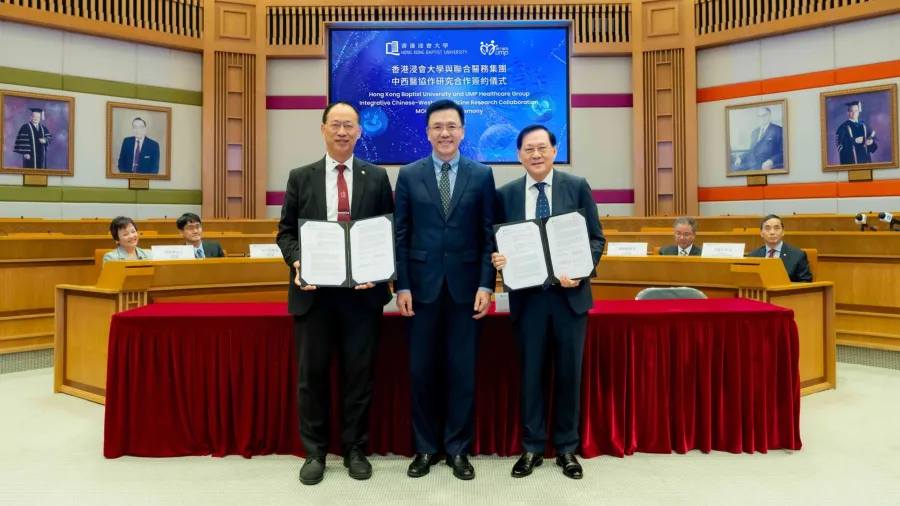
UMP Healthcare Group and Hong Kong university ink MOU for medicine research
Both institutions will explore developing tech for Chinese-Western medicine.
Hong Kong Baptist University (HKBU) and UMP Healthcare Group (UMP) inked a memorandum of understanding (MOU) for a strategic partnership in exploring potential models of integrative Chinese-Western medicine by research collaboration.
Both institutions see providing scientific data support and developing innovative technologies for integrative Chinese-Western medicine to achieve clinical diagnosis and treatment effects for the benefit of patients.
Under the MOU, the “Integrative Chinese-Western Medicine Research Collaboration” will be launched with the objective of initiating multiple clinical and translational research projects in different healthcare areas, such as oncological treatment through studies on their efficacies and safety.
The collaboration will develop innovative treatment protocols through Chinese-Western medicine consultation and collaboration, and the study of the scientific approach of integrative Chinese-Western medicine to offer the best treatment results for patients.
HKBU is the pioneer of Chinese medicine education and research in Hong Kong and has rich experience in providing Chinese medicine clinical services.
Professor Sun Dong, Secretary for Innovation, Technology and Industry of the HKSAR Government, said: “HKBU has been actively promoting the development of Chinese medicine and the collaboration among the industries, academia and research institutes to provide quality Chinese medicine services for the public of Hong Kong."
The research collaboration will explore a clinical model for integrative Chinese-Western medicine to systematically understand how patients may benefit from this treatment approach and to address current limitations in the field, namely the need for medical laboratory tests and Chinese-Western medical referrals.
"The outputs of the study will foster a closer understanding and cooperation between Chinese and Western medicine, and thus improve treatment outcomes," read the statement.


















 Advertise
Advertise


